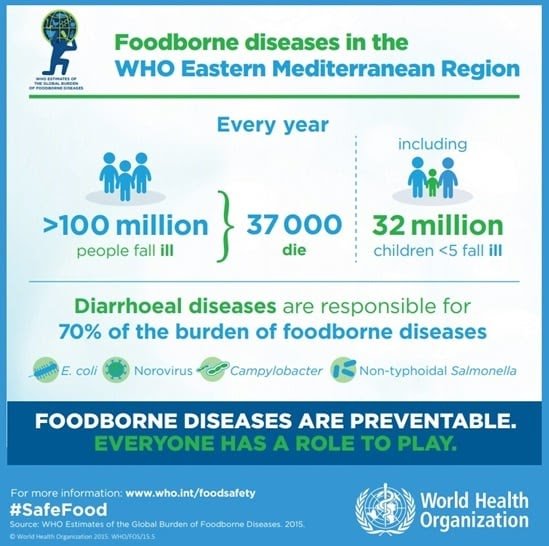The Abu Dhabi Agriculture and Food Safety Authority (ADAFSA) stepped up its commitment to international food safety collaboration by hosting the seventh meeting of the World Health Organization’s (WHO) Foodborne Disease Burden Epidemiology Reference Group (FERG) this year. The Abu Dhabi gathering brought together FERG members and WHO representatives to tackle the challenge of foodborne diseases on a global scale.
FERG’s core mission is to refine methodologies for estimating the burden of foodborne diseases. This involves pinpointing the most effective indicators to monitor global progress in reducing these illnesses. The Abu Dhabi meeting specifically focused on sharing expertise and knowledge on assessing the burden of foodborne diseases. This exchange of knowledge is crucial for developing standardized approaches that can be applied internationally.
Foodborne diseases are illnesses caused by consuming contaminated food or beverages. They can range from mild discomfort to severe illness and even death. The World Health Organization estimates that around 1 in 10 people globally fall sick every year from eating contaminated food, and millions become sick enough to require hospitalization.
The impact of foodborne diseases extends far beyond individual health. These illnesses also place a significant burden on healthcare systems and economies worldwide. According to a report by the World Bank, unsafe food costs low- and middle-income countries an estimated US$110 billion annually in lost productivity and medical expenses.
ADAFSA’s leadership in hosting the FERG meeting underscores the UAE’s commitment to becoming a global leader in food safety. By collaborating with international organizations like the WHO, ADAFSA is well-positioned to play a key role in developing and implementing effective strategies to combat foodborne diseases around the world.
The focus on developing better methods for estimating the burden of foodborne diseases is a critical step. This data is essential for raising public awareness about the seriousness of this global health threat. It also allows policymakers to prioritize resources and interventions where they will have the greatest impact.
The Abu Dhabi meeting is a significant development in the fight against foodborne diseases. By bringing together experts from around the world to share knowledge and develop standardized assessment methods, FERG is paving the way for more effective prevention and control strategies. These efforts have the potential to save lives and protect public health on a global scale.



